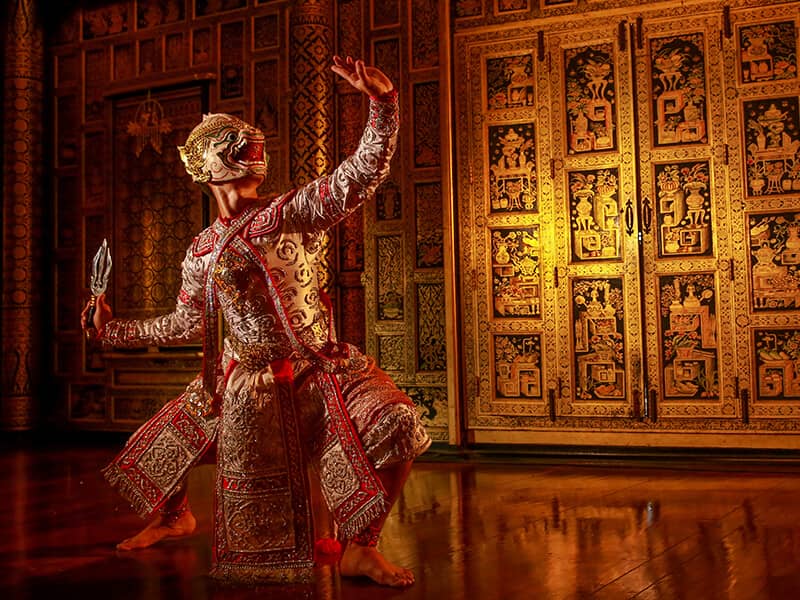My petite mother, in her flowing sari and red bindi, looked about, alarmed, and made placating gestures. I was seething with anger. Was this any way to talk to an elderly lady? Who did the guard think he was?
My nephew, a West Point graduate, raced up to the guard, stood an inch away from his face, and demanded, in the steely voice of a sergeant interrogating an errant cadet, "Is there a problem here? That's my grandmother you're yelling at."
The guard immediately backed off. "No problem, sir," he said with a mollifying smile. "I was just trying to help the lady into the car."
My nephew didn't move. "That's not what it looked like to me. What's your name? And where is your supervisor?" he asked.
"It's all right," my mother said. "It is time we left anyway. Come on, let's go."
With a screech of tires, my nephew pulled out of the parking lot and onto the highway. "Why did you do that, Paati?" he burst out. "I was ready to teach that jerk a lesson or two."
"What is the point of picking fights?" my mother asked. "You are not going to change his behavior."
"It is people like you that give us Indians a bad name," my nephew retorted. "That's why everyone thinks they can push us around."
"Come on, take a deep breath. Be at peace," my mother said playfully.
"I am sick of this Hindu nonsense," my nephew said. "All of that might work in India. But here, you are a foreigner, and you have got to stand up for your own rights."
"Or maybe he was pushing us around because we are so passive."
This kind of argument over Hinduism and its reputation for passivity is taking place on a larger stage than my family's car. I recently took a trip to India, where I saw firsthand the sweeping changes that a scant few years have wrought. India once prided itself on being a secular nation. The India I knew and grew up in was a country where Hindus, Muslims, Christians, and Jews lived in chaotic harmony.
But the India that I recently visited was a country where prominent leaders were calling themselves "patriotic Hindus," instead of "patriotic Indians," as they once had, as if being a Hindu was somehow a prerequisite for patriotism.
Today's Hindu politicians are taking a stance more like my nephew's than my mother's. They urge their Hindu followers to become radical "religious warriors" and "stand up against" their Muslim compatriots. Political speeches are rife with religious references where once there were none. The new Hindu Nationalist Party has started a movement called "Hindutva," and the message is clear: All the problems that have been visited upon Hindus in India are because Hindus are such a tolerant and pacifist breed. It was this pacifism that allowed Christian missionaries to convert thousands of Hindus to Christianity and allowed Muslim terrorists to rape Hindu girls and raze Hindu temples.
Like most extremist propaganda, this is rooted in truth: Hinduism is a passive religion in which acceptance, tolerance, and detachment are valued more than aggression, persuasion, and activism. One of the characteristic traits of a good Hindu is fatalism, along the lines of, "Whatever happens is for the best. Accept it."
But this type of pacifism is not "sexy." It's not attractive to today's Indian youth, with their pumped-up adrenaline and pent-up frustrations. In the last few years, India has experienced a growing backlash against this pacifism. The Hindu Nationalist Party has ridden a wave of popularity as it promises to turn Hinduism into a religion of action rather than mere words.
"We Hindus have long been dismissed as a passive, nonthreatening group," said one investment banker. "It is time we made the world sit up and take notice of us."
"That's right," said another. "The world has a completely wrong impression of Hinduism. They think it is all about Sanskrit chants and yoga. They think they can walk all over us, and we won't do a thing. We need to show them that we mean business."
I tried to decipher whether the group's anger had its foundation in racist slights or the Hindutva movement that seeks to instill group pride and defiance among Hindus. I am not sure. I do think, though, that practitioners of the Hindu religion, which has long been taken for granted in India, are feeling the cumulative effect of slights and inner frustrations. The result is an uncharacteristic revolt against Hinduism's conquerors, critics, and indifferent observers.
As for me, I am not sure where I fall. Am I a passive Hindu? Is it wrong, if not outdated, to be one? My answer is yes to the first question, and a qualified yes to the second. My Hindu values are fairly traditional: I believe in karma, am not sure about reincarnation, and am a fatalist above all. I don't proselytize about Hinduism, and I consider myself fairly open to other religious traditions.
Yet, at the same time, I too find Hinduism to be too detached to be effective in addressing the problems that assail modern India. India does need movers and shakers, not meditating monks. It needs people who will shake up the system rather than accept the status quo; it needs people who seek to banish poverty rather than tolerate it. In other words, the Hindu values of acceptance, tolerance, and fatalism have not always been beneficial for India.
So, while I certainly don't condone violence or sectarian clashes, I do applaud activism. The last thing India needs is a passive Hindu. We just need to channel our action in constructive ways.

